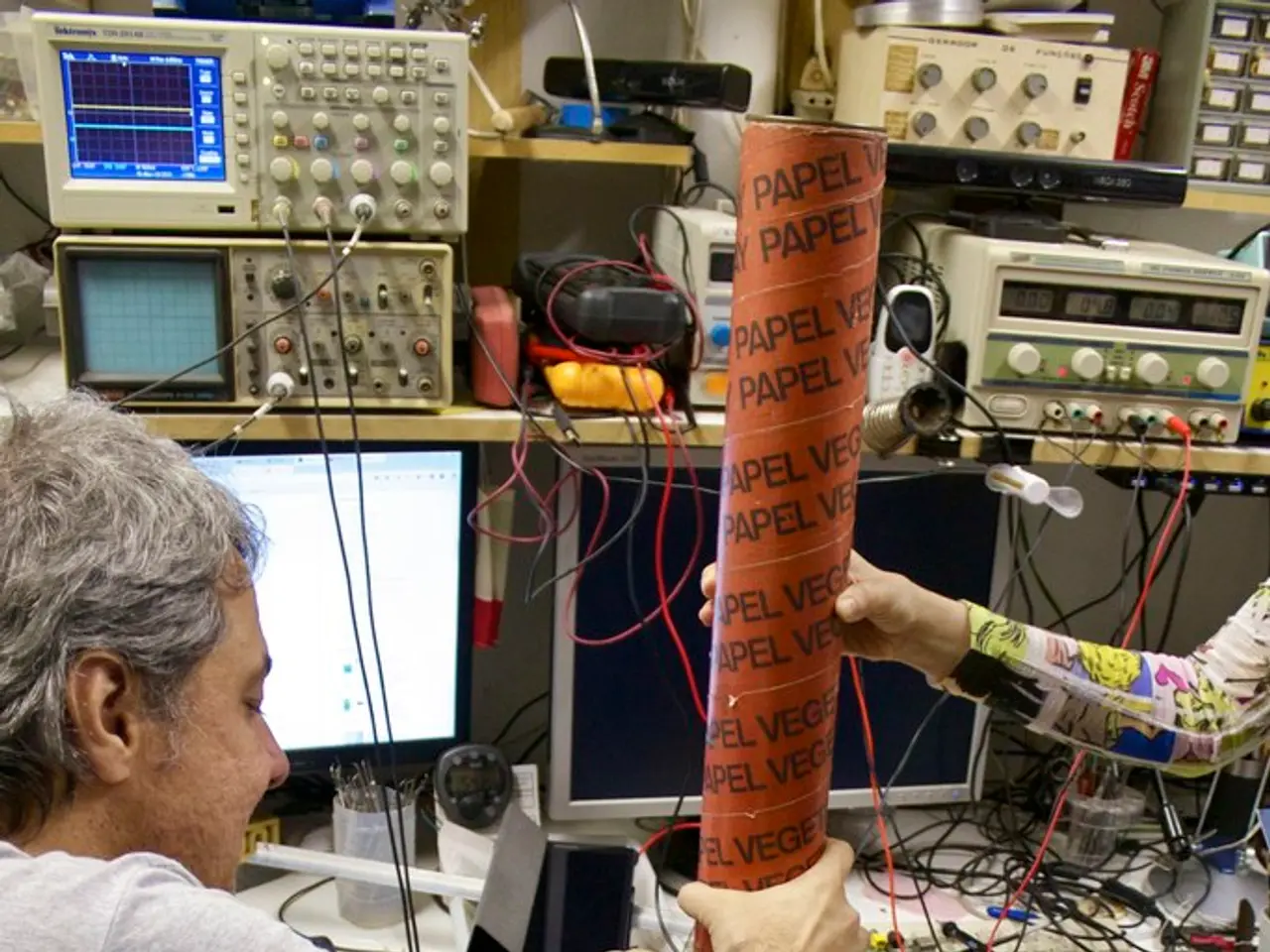Man with Neuralink implant shares his overnight experience of utilizing the device shortly after its installation.
Headline: Neuralink Brain Implant Enhances Gaming Experience for Paralyzed Individual, Offers Hope for Future Paralysis Cure
Noland Arbaugh, a 29-year-old from the United States, has made history as the first person to receive the Neuralink brain implant. The device, developed by Elon Musk's Neuralink corporation, has significantly improved Noland's quality of life, making activities like video gaming possible again.
The Neuralink device is powered by an advanced custom chip within the implant that processes neural signals and transmits them to a digital device through a standard Bluetooth connection. Thin, flexible threads equipped with 1,024 electrodes record the activity of neurons, allowing the device to translate thoughts into commands.
Noland suffered a freak diving accident eight years ago, which left him paralyzed from the neck down. His identity was not revealed until recently. After the Neuralink device was fitted in January, Noland has spent hours playing chess, stayed up late playing Civilization VI, and even played Mario Kart with his father for the first time since his Neuralink surgery.
Noland considers the Neuralink surgery to be 'easy' and believes that the technology has the potential to cure paralysis in the future. He shared a video of a speech he gave at the Neuralink headquarters 'a few weeks back', detailing his first month since the Neuralink surgery. His recovery period was shorter than expected, with him being discharged just a day later.
Comparatively, another participant, known as "Alex," reportedly played first-person shooter games at a higher level than previously possible after receiving the implant. This suggests that advanced users like Alex can potentially achieve finer control and higher performance in games, contributing to a more immersive and engaging gaming experience.
Noland's case demonstrates how Neuralink's brain implant enhances the gaming experience for individuals with spinal cord injuries by allowing them to control digital devices with their thoughts. This technology offers a groundbreaking way for individuals with disabilities to re-engage with digital activities, including gaming, by bypassing damaged spinal cord pathways and directly linking thoughts to actions.
Noland believes that Neuralink will change the way people with disabilities live their lives, offering a glowing review of his life-changing new brain implant in an hour-long clip he shared recently. With the success of Noland's case, the future of Neuralink and its potential to cure paralysis looks promising.
- The Neuralink brain implant, powered by an advanced custom chip, is not only enhancing the gaming experience for individuals like Noland Arbaugh, who were paralyzed, but it also offers hope for a future cure for paralysis.
- The potential of Neuralink technology extends beyond gaming, as it has the capacity to revolutionize various areas of life, particularly health-and-wellness, mental-health, and fitness-and-exercise, by directly linking thoughts to actions.
- Noland Arbaugh, the first recipient of the Neuralink device, is evidence of the technology's impact on news and science, as advancements in technology continue to probe the vast frontier of neural connections.
- In addition to its significance for gaming, the Neuralink brain implant has shown promise in other aspects of life, particularly in helping individuals regain their lost abilities and improve their quality of life, as exemplified by Noland's progress in playing chess, video games, and even Mario Kart with his father.




